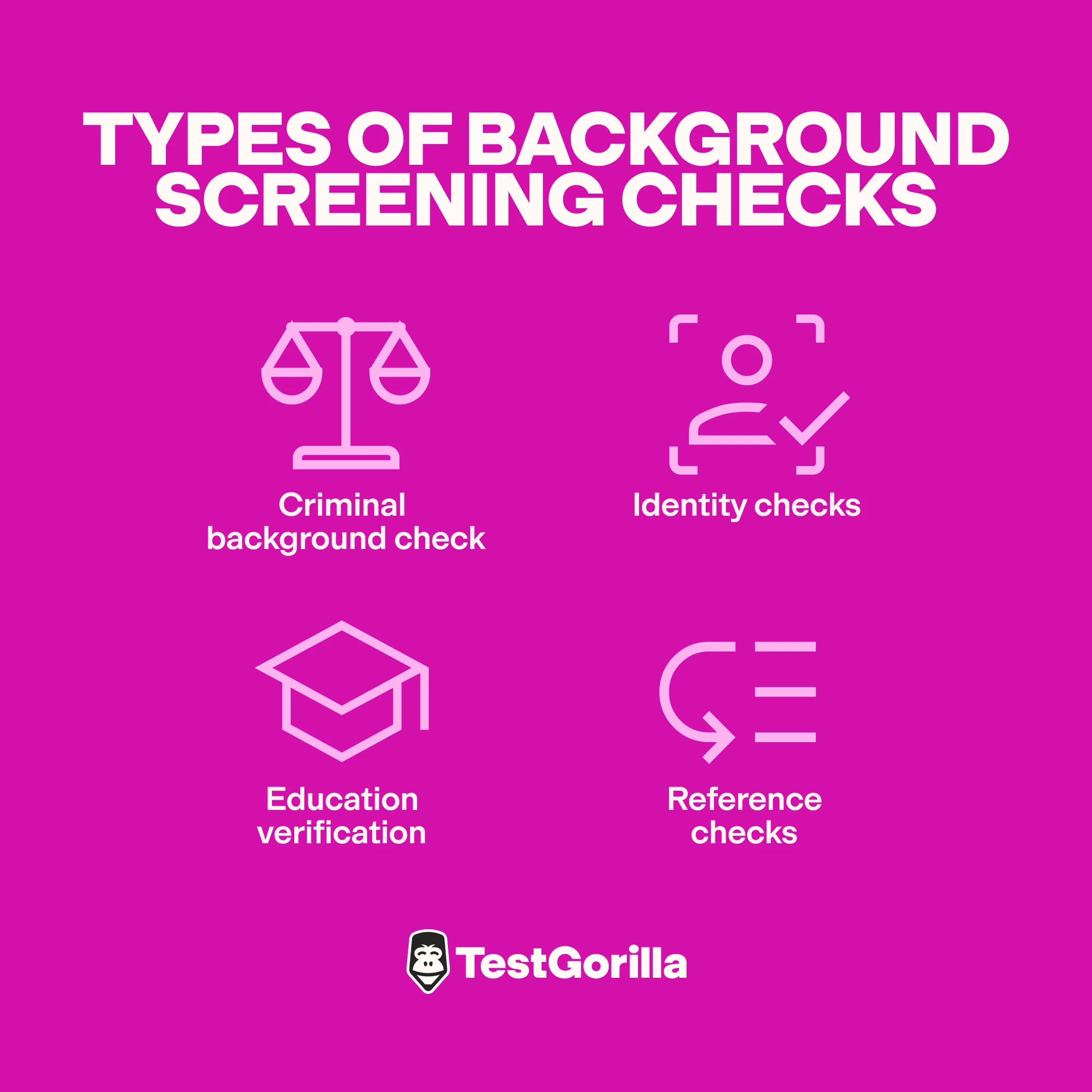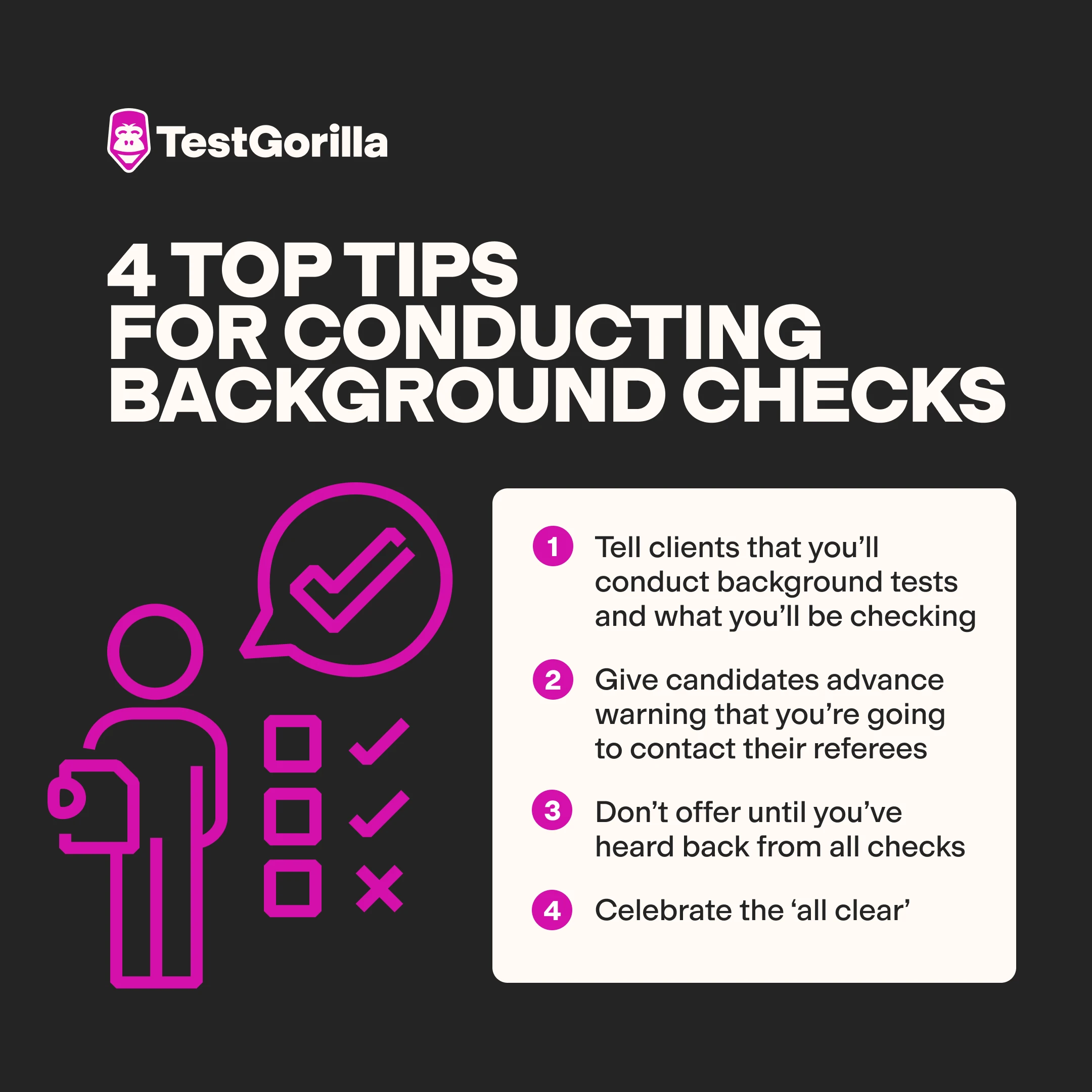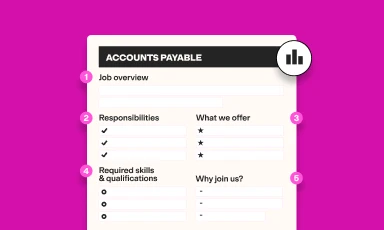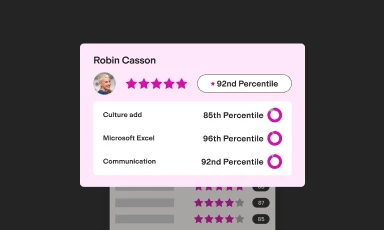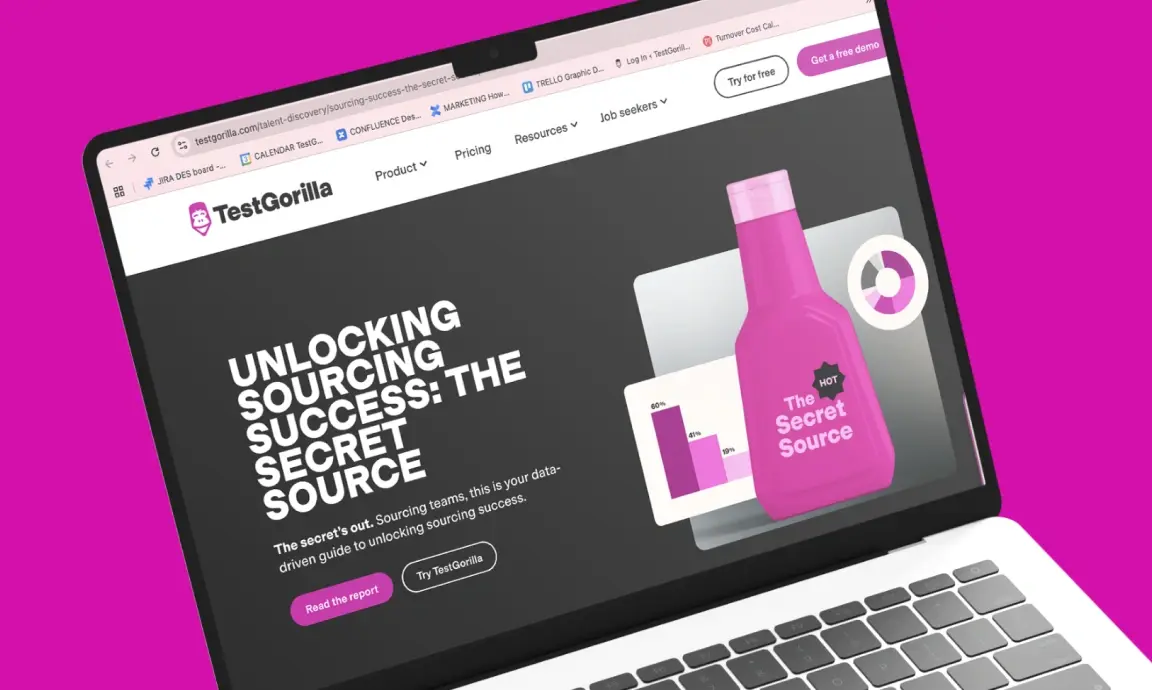Background screening involves checking that your applicant is exactly who they say they are on paper. This might include checking identifying documents like passports, public records, previous employment, qualifications, and criminal history to ensure they’ve been honest on their application.
There’s no legal requirement to conduct background checks (other than an identity check), but vetting a candidate thoroughly helps you avoid any nasty surprises down the line, especially once you’ve already hired them.
You can conduct background screening yourself or use dedicated background screening services to complete this process. Read on to learn more!
Why is background screening important in hiring?
Background screening is an important part of the hiring process for the following reasons:
Identity checks are a legal requirement. All employers must complete form I-9, confirming that a candidate’s identity documents match their social security number. The US Immigration Reform and Control Act (ICRA) also stipulates that all US employers must conduct identity checks.
Confirms a candidate’s qualifications. Checking a candidate's educational background is crucial for roles that require specific qualifications. You’ll want to be sure a candidate has all the necessary accountancy qualifications before letting them loose on your spreadsheets, for example.
Strengthens company culture. Hiring candidates who have been honest about their skills, background, and experience ensures you only hire candidates who share your values of honesty and integrity. Over time, this will strengthen your company’s culture.
Safeguards customers. Companies who work with children or vulnerable people need to be extra careful that their employees are trustworthy and meet high standards of integrity and responsibility. Without proper vetting and criminal record checks, you may put your vulnerable client base at risk!
Types of background screening checks
There are four main types of background checks. These include:
Criminal background check. Checking whether a candidate has a criminal record is a key aspect of background screening. This doesn’t mean you should completely disregard anyone with a criminal history. But if they’ve lied about it or if their crime directly undermines the integrity of your business, think twice before hiring. It wouldn’t be appropriate for someone convicted of fraud to work in a financial institution, for example.
Identity checks. Employment verification includes checking that the person in front of you matches up with their government-issued ID and social security number. This is a key step in ensuring legal hiring compliance and preventing modern slavery.
Pro tip: The signs of modern slavery may not always be clear. It’s important to keep up to date with what modern slavery (also called forced labor or labor trafficking) means and the signs to look out for.
Education verification. Education verification involves checking that a candidate’s qualifications are genuine. You can do this by asking for their degree certificates, contacting their educational institutions, or using trusted third-party services.
Reference checks. Checking a candidate’s references includes reaching out to agreed past employers, tutors at schools and colleges, or anyone they’ve listed as a reference on their resume. Use this to check how they performed in previous roles and get a sense of their work ethic, reliability, and teamwork skills.
The best insights on HR and recruitment, delivered to your inbox.
Biweekly updates. No spam. Unsubscribe any time.
Best practices for conducting background checks
Follow these four top tips to make the background check process simple.
1. Give them a heads up
Tell candidates you’ll conduct background checks in advance and exactly what checks you’ll conduct. This shows transparency and builds trust, helping candidates feel more comfortable with the process instead of feeling like they’re suddenly under a microscope.
2. Check before you contact
Give candidates advance warning that you’re going to contact their referees so they can let them know they should expect a call or email. The candidate will feel more at ease knowing their contacts are prepared. Plus, it’s a simple courtesy that shows respect for all concerned.
3. Don’t offer until you’ve heard back from all checks
Wait until you’ve got the results of all your checks before extending an offer to the candidate. Failing to do this may lead you to hire candidates who have embellished their resume, don’t actually have the skills to do the job, or don’t have the right to legally work in the US!
4. Celebrate the ‘all clear’
Let your successful candidate know once all the background checks are complete and extend your offer. Be sure to let them know how much they’ll be paid and how they’ll receive feedback, and negotiate their start date.
If they accept your offer, let them know how excited you are to have them join the company. This small celebration will start their onboarding off on the right foot and make them feel valued.
Common mistakes to avoid in background screening
Avoid these three common pitfalls when completing your background checks.
1. Immediately disregarding a candidate after a bad check
Don’t immediately disregard a candidate if a background check brings up adverse actions or something unexpected. Instead, consider the context and discuss it with the candidate. Ask them to explain what happened and listen to their perspective. After all, there are two sides to every story, and people make mistakes. What matters most is what they learned from the experience and how they’ve grown since.
2. Ignoring social media
Although it doesn’t technically come under background screening, checking social media for adverse content or behavior can provide extra insight into a candidate’s character and values. Just be mindful not to judge too quickly – social media often shows just a slice of someone’s life, and personal posts may not always reflect their professional conduct.
However, if you see anything illegal or counter to your company values, you may want to consider whether this is the right person.
3. Overlooking employment gaps
Employment gaps are fine, and they’re a completely normal part of a professional adult’s career. But you shouldn’t ignore a candidate's employment gaps, either, as this could mean you miss out on valuable context.
Ask the candidate what they were up to during that time. They could have been traveling, caring for a sick family member, volunteering, or upskilling. These experiences can often add depth to their skill set and show resilience, adaptability, or even new perspectives they bring to the table.
FAQs
How far back should background checks go?
Criminal record background checks can go back up to 10 years. However, businesses typically only look at the last two places of employment for employment checks.
Does social media show up on a background check?
Social media accounts won’t show up on a standard background check, but hiring managers may conduct their own checks to ensure there’s nothing untoward.
Can employers see your private Instagram?
No, employers cannot see an Instagram account with privacy settings enabled.
You've scrolled this far
Why not try TestGorilla for free, and see what happens when you put skills first.


